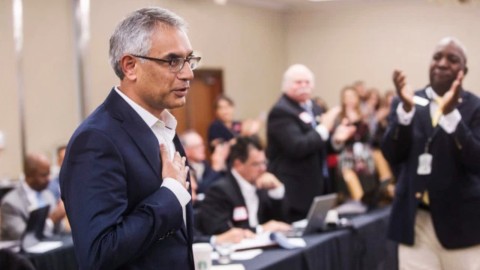A Muslim GOP leader, a Catholic judge, and the American tradition of associations
The right to form associations is part of First Amendment. Yet Americans sometimes view membership in them with suspicion—as some did with Shahid Shafi and Brian Buescher.

(The Christian Science Monitor) Shahid Shafi is a trauma surgeon in Southlake, Texas, and vice chair of the Republican Party in his county. Brian Buescher is a lifelong Nebraskan who was nominated for U.S. District Court judge.
In recent months both faced suspicion about their loyalties because of their membership in religious organizations: Shafi in his mosque and Buescher in the Knights of Columbus, a fraternal Catholic organization.
Forming organizations and associations for religious, social, and political purposes is so foundational for Americans that it is enshrined in the First Amendment. At the same time, U.S. history has been rife with distrust about some of those organizations, from George Washington’s concerns about political parties to the widespread belief that John F. Kennedy, a Roman Catholic, would be more loyal to the pope than the Constitution.





